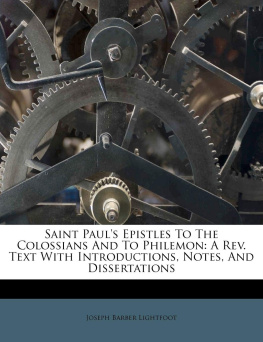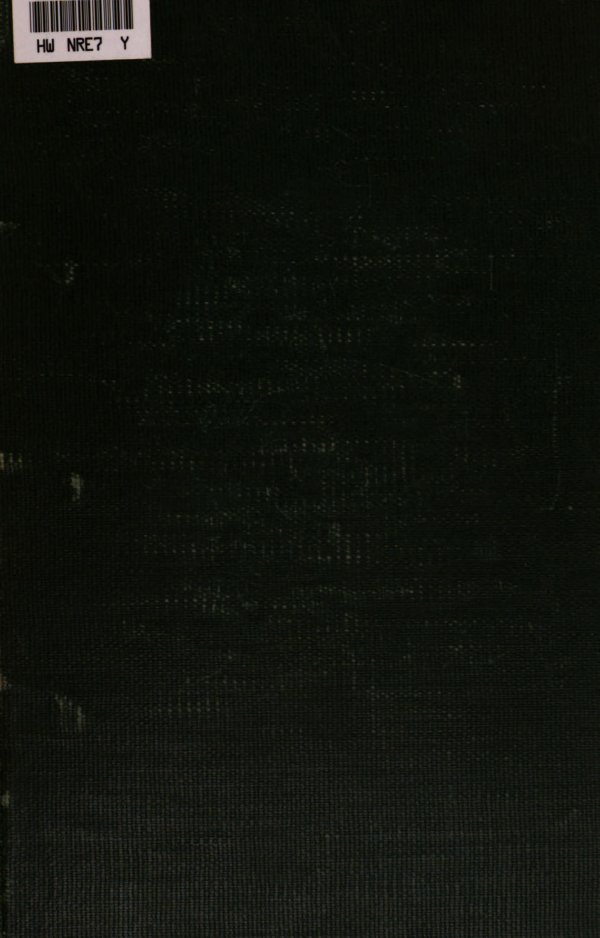The Life of John Milton
David Masson
Google Book Search
This is a digital copy of a book that was preserved for generations on library shelves before it was carefully scanned by Google as part of a project to make the world's books discoverable online. See the back of the book for detailed information.
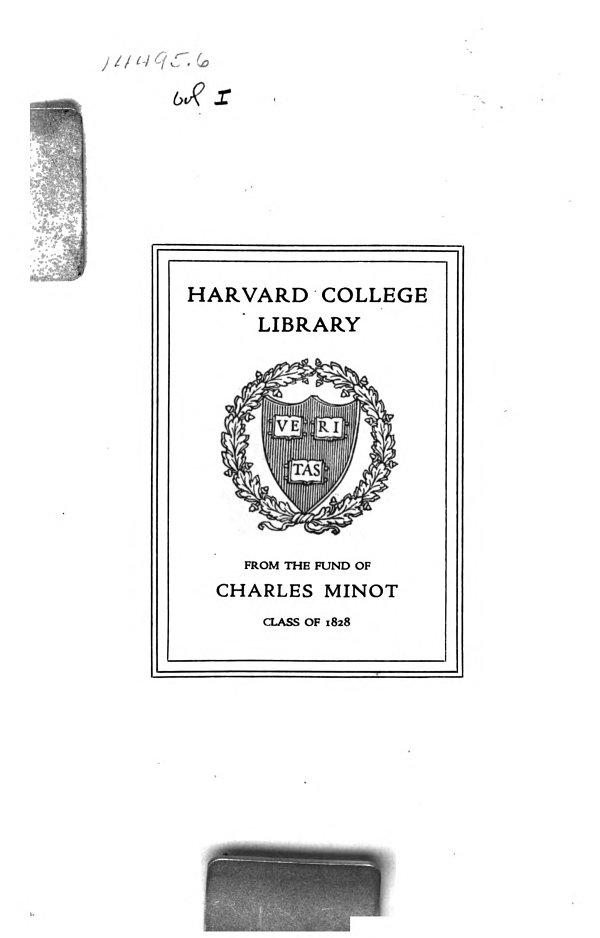


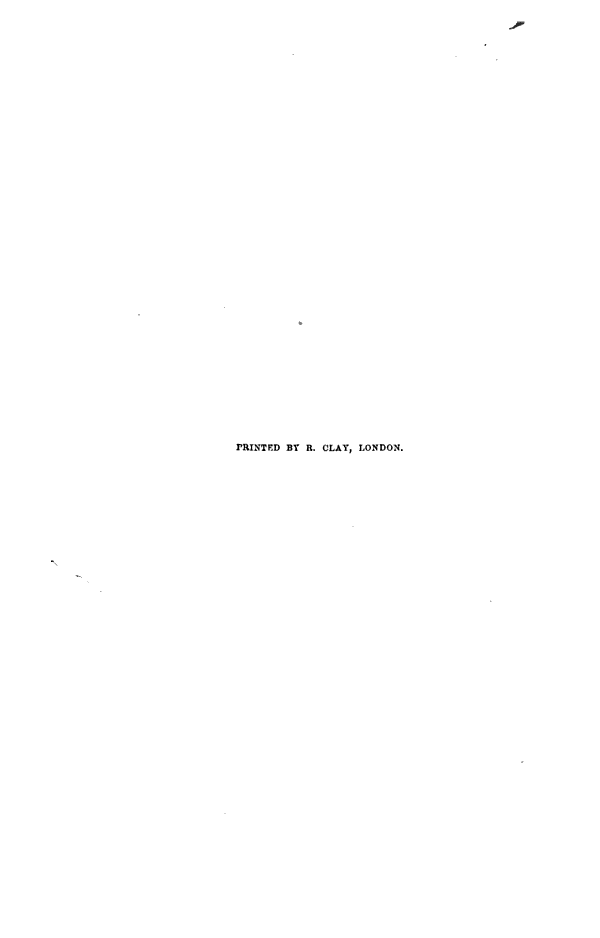
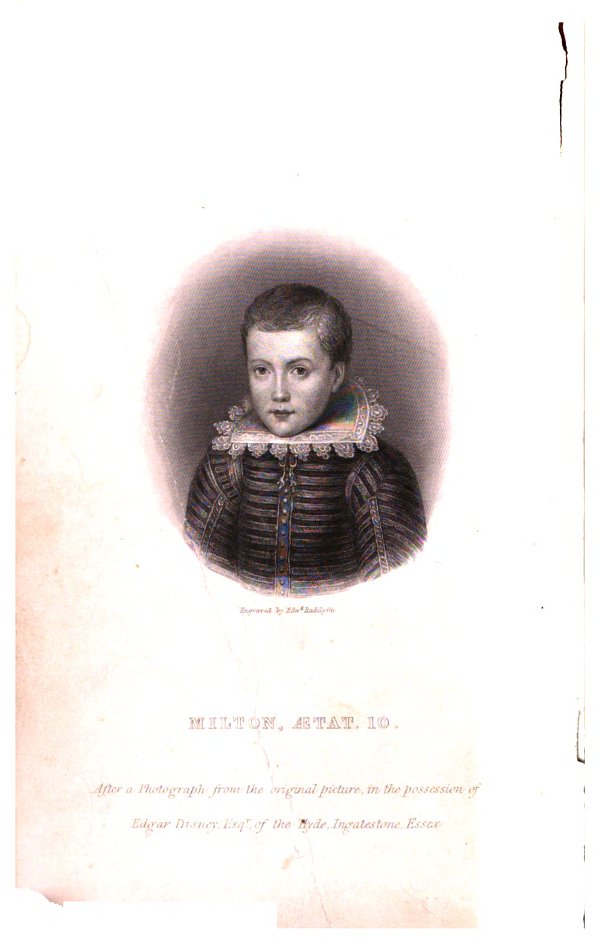
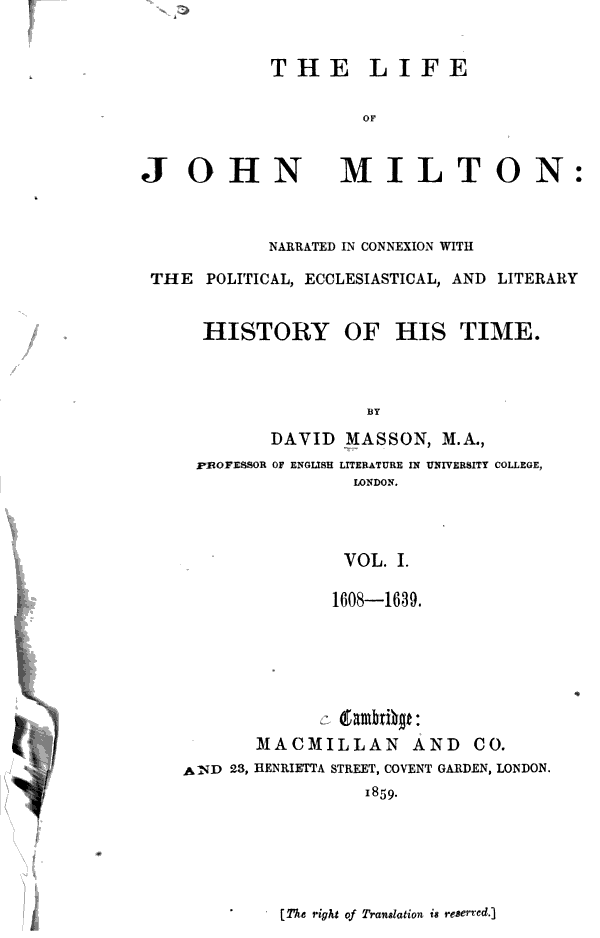
NOTICE
It is intended that the title of this Work should indicate its character. Such an alternative title as "The Life and Times of Milton" might suggest more familiarly, perhaps, the precedents which the Author has had in view. While his first object has been to narrate the Life of Milton fully, deliberately and minutely, with as much of additional fact and illustration as might be supposed to result, even at this distance of time, from new research and from a further examination of the old materials, he has not deemed it unfit, in the instance of such a Life, to allow the forms of Biography to overflow into those of History. In other words, it is intended to exhibit Milton's Life in its connexions with all the more notable phenomena of the period of British history in which it was castits state-politics, its ecclesiastical variations, its literature and speculative thought. Commencing in 1608, the Life of Milton proceeds through the last sixteen years of the reign of James I., includes the whole of the reign of Charles I. and the subsequent years of the Commonwealth and the Protectorate, and then, passing the Restoration, extends itself to 1674, or through fourteen years of the new state of things under Charles II. No portion of our national history has received more abundant or more admirable elucidation than these sixty-six years; but, perhaps, in traversing it again in that mood and with that special bent of inquiry which may be natural where the Biography of Milton is the primary interest, some facts may be seen in a new light, and, at all events, certain orders of facts lying by the sides of the main track may come into notice. As the great poet of the age, Milton may, obviously enough, be taken as the repre sentative of its literary efforts and capabilities; and the general history of its literature may, therefore, be narrated in connexion with his life. But even in the political and ecclesiastical departments Milton was not one standing aloof. He was not the man of action of the party with which he was associated, and the actual and achieved deeds of that party, whether in war or in council, are not the property of his life; but he was, as nearly as any private man in his time, the thinker and idealist of the partynow the expositor and champion of their views, now their instructor and in advance of them; and hence, without encroaching too much on common ground, there are incidents and tendencies of the great Puritan Revolution which illustrate his Life especially, and seek illustration from it.
As if to oblige Biography, in this instance, to pass into History, Milton's Life divides itself, with almost mechanical exactness, into three periods, corresponding with those of the . contemporary social movement, the first extending from 1608 to 1640, which was the period of his education and of his minor poems; the second extending from 1640 to 1660, or from the beginning of the Civil Wars to the Restoration, and forming the middle period of his polemical activity as a prose-writer; and the third extending from 1660 to 1674, which was the period of his later muse and of the publication of "Paradise Lost." It is the plan of the present work to devote a volume to each of these periods.
PREFACE TO VOL I
The most authentic and important information respecting Milton is to be derived from his own writings. While all of them, in every part, reveal the man and represent his life, and while there are few of them from which facts of the external kind may not he gathered, there are portions of them which are expressly and even minutely autobiographical. As respects the period embraced in the present volume, these portions may be enumerated as follows :I. Among his prose writings in English and in Latin at a later period, there are several in which he gives summaries, or at least connected reminiscences, of the facts of his preceding life. The most notable passages of this kind occur perhaps in his Reason of Church Government (1641), his Apology for Smectymnuus (1642), and his Defensio Secunda pro Populo Anglicano (1654). These and similar passages have been duly attended to, and, where necessary, are reproduced textually. II. All Milton's minor poetry, whether in English or in Latin, with the exception of a few English sonnets and one or two trifles in Latin, &c.in other words, almost all that he wrote in verse during his whole life, besides Paradise Lost, Paradise Regained, and Samson Agonistesbelongs to the period of this volume. The pieces number, in all, from five-and-forty to fifty, longer or shorter; and, having been produced, most of them, on special occasions, and sometimes with reference to passing incidents in the poet's life, they have an unusual interest for the biographer. About half of them, being in English, are generally knownsome of them, indeed, such as the Ode on the Nativity, L'Allegro and II Penseroso, Comus, and Lycidas being among the best known poems in the English language. With these, accordingly, my duty has chiefly been to mention them in their proper chronological order, to examine them afresh with a view to extract their biographical import, and to set each of them successively, as exactly as might be, in its topographical and historical connexions. As regards the equally numerous Latin poems of the series (and the few Italian poems may be included) more has been required of me. Though fully as characteristic as the English poems, and though perhaps richer in biographical allusions, they have been much less read; and it has been a part of my purpose to bring them forward again to that place of co-ordinate or nearly co-ordinate importance with their English associates from which the petty accident of their being in Latin has too long excluded them. To this end, I have either given an account of each of them by way of description and abstract, or, where requisite, have ventured on a literal prose translation. III. To the period of this volume there also belong nine of Milton's Latin "Familiar Epistles" and one English letter of his. These are inserted in their proper places, the Latin Epistles being translated, I believe, for the first time. The same applies to certain letters to Milton, and to certain encomiums addressed to him in Latin and Italian. IV. Less known than any portion of Milton's Latin writings, nay, I may say, utterly unknown, are certain Latin compositions, also of our present period, forming a little series by themselves, distinguished by peculiar characteristics, and full of biographical light. I allude to his so-called


